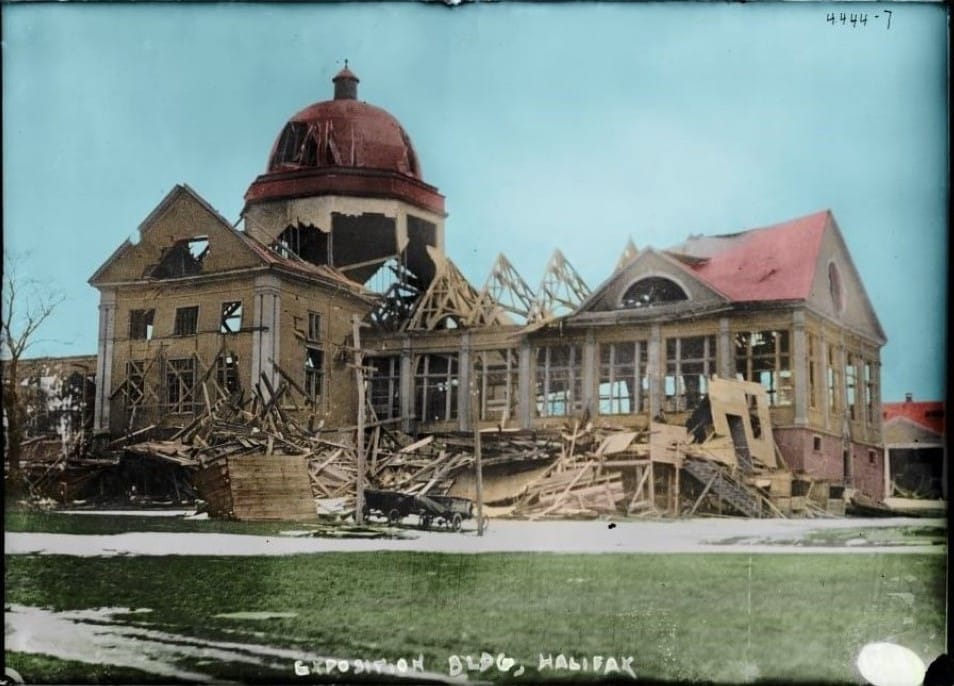A flesh-eating fungus is on the rise in the US Midwest

From the Washington Post: "At some point, Erik McIntyre inhaled the fungal spores. He couldn’t see them, or feel them, and it was weeks before he began to lose energy, to drop weight, to cough up blood at a karaoke bar in Arizona. Now he’s paralyzed from Valley fever, in a nursing home at age 53. The antifungal injections are less frequent now, and the lesions where the fungus grew on his face and arms have faded. But he knows he will never walk again. Valley fever has long haunted the American Southwest: Soldiers, construction workers, and prisoners have all encountered the fungus. But the threat is growing. Cases have roughly quadrupled over the past two decades."
Why are there murals of angels holding guns in this Bolivian town?

From Amy Crawford for Atlas Obscura: "About an hour and a half south of La Paz, Bolivia, the town of Calamarca is in many ways a typical colonial settlement, a grid of houses and shops centered around a circa 1600 Baroque church that overlooks a small plaza. Inside this church, however, a remarkable gathering of angels has made the town a destination. Dressed in lace, feathers, and gold brocade—finery that resembled that of the Indigenous elites who administered Spanish colonial rule—these celestial beings are androgynous, posing like dancers with their wings discretely held behind them. What startles the viewer is that they are also bristling with weaponry: Each is armed with a musket—specifically, an arquebus, a common infantry gun of the 16th century."
It was the largest man-made explosion until the atomic bomb came along

From Dan Lewis for Now I Know: "On December 6, 1917, the SS Imo, an empty Norwegian passenger and freight ship, and France’s SS Mont Blanc, collided in the port of Halifax, Nova Scotia. The Mont Blanc, which was loaded with munitions, caught fire; twenty minutes later the ship exploded, with an intensity roughly one-fifth that of the atomic bomb which struck Hiroshima. The Mont Blanc itself was instantly vaporized; a fire plume shot up over a mile in the air. The blast was so powerful that a half-ton piece of the ship’s anchor shaft shot through the skies, landing over two miles away. More than 2,000 people were killed."
Editor's note: If you like this newsletter, I'd be honoured if you would help me by contributing whatever you can via my Patreon. Thanks!
The brother and sister duo who are taking the world of chess by storm

From Susan Ninan for the BBC: "In the last decade, few have fit the chess prodigy descriptor as well as India's Rameshbabu Praggnanandhaa. He was 10 years old when he became the then-youngest International Master, the second-highest title after Grandmaster. He became the second-youngest Grandmaster in 2018, defeated five-time world champion Magnus Carlsen three times in a row in online games, and is only the second Indian after Viswanathan Anand to make a World Cup final and qualify for the Candidates tournament. Meanwhile, another chess-playing member of his family awaited her turn - Praggnanandhaa's sister Vaishali, who is older by four years."
The world’s largest iceberg is on the move

From Sam Meredith for CNBC: "The world’s largest iceberg is on the move for the first time in more than 35 years. Scientists believe the juggernaut’s breakaway from Antarctica was a natural occurrence, but say it provides a stark reminder of the potentially disastrous implications as global sea levels rise. The iceberg, known as A23a, is estimated to cover an expanse of almost 4,000 square kilometers (1,500 square miles), making it roughly three times the size of New York City. Satellites have been closely tracking the iceberg’s movements from space after it recently broke free from the White Continent for the first time."
What does the phrase "in the jackpot" mean and where did it come from?
From Timothy Burke for Deadspin: "The emergence of a 2016 video featuring mic’d-up Terry Collins arguing with umpire Tom Hallion gave the world its most prominent demonstration of a phrase that was, until that point, known by only a small audience. He said he was afraid he would end up with his “ass in the jackpot.” The phrase shows up in 2002, in the third episode of the first season of The Wire, and clearly means something bad – a penalty of sorts. The 1929 edition of the Baltimore Sun contains an answer: During the Civil War, the master of a slave could put him in the jackpot, as part of the poker game. If he lost, then his slave would become the property of whoever won the pot."
Everything in this news clip, including the people, is AI generated
Woah. Wtf.
— Linus (●ᴗ●) (@LinusEkenstam) December 13, 2023
All anchors in this 21min news clip and numerous other things are AI powered.
Holy smokes, things are going to get wild
pic.twitter.com/OJaITjeaDe
Acknowledgements: I find a lot of these links myself, through RSS feeds etc. But I also get some from other newsletters that I rely on as "serendipty engines," such as Rusty Foster's Today In Tabs, Clive Thompson's Linkfest, Maria Popova's website The Marginalian, The Morning News from Rosecrans Baldwin, Why Is This Interesting, Dan Lewis's Now I Know, Robert Cottrell and Caroline Crampton's The Browser, Sheehan Quirke AKA The Cultural Tutor, the Smithsonian magazine, and JSTOR Daily. If you come across something you think should be included here, feel free to email me.



